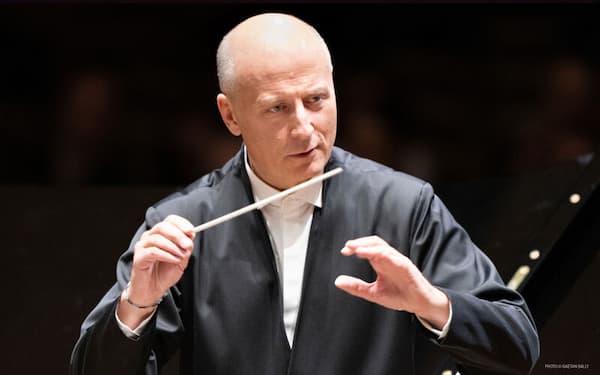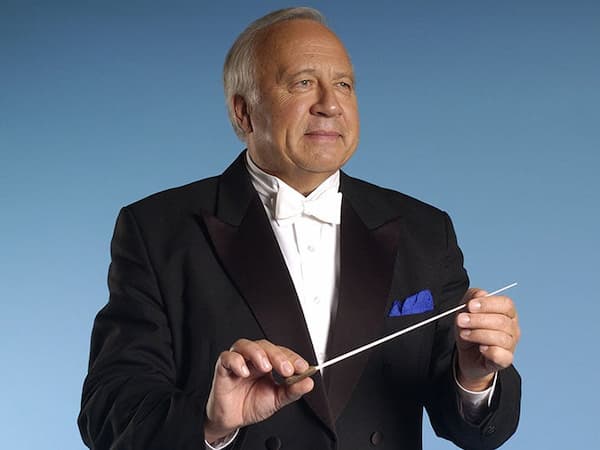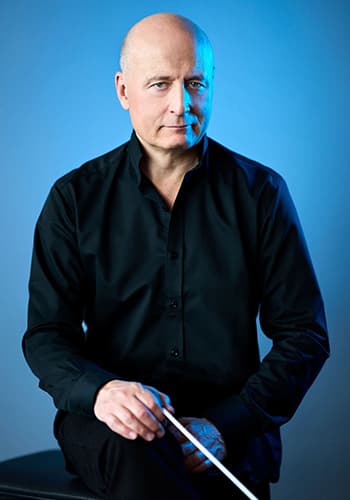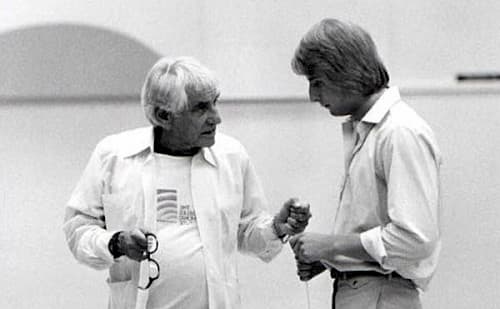For over three decades, conductor Paavo Järvi has captivated audiences with his powerful yet nuanced interpretations. His passion for detail and his meticulous approach have created collaborative relationships that are characterised by boundless energy and youthful vitality.
Paavo Järvi is one of the most sought-after conductors of his generation, and he is rightfully considered a cosmopolitan musical genius!
Paavo Järvi Conducts Tchaikovsky’s Serenade for String in C Major, Op. 48
Famous Family

Paavo Järvi was born on 30 December 1962 in Tallinn, during a time when Estonia was a republic of the Soviet Union. And he comes from a seriously famous family of musicians. His father, Neeme, was a celebrated conductor who was world-famous for his spontaneity, creativity, and freedom of expression. Neeme was a prolific recording artist, amassing a discography of nearly 500 recordings. Compelled to emigrate by Soviet authorities, he was always a keen promoter of Estonian music.
Paavo’s brother Kristjan is also a conductor and described as “a one-man-show of a rock star wearing a sweater and stretch jeans.” His primary focus has turned toward new conceptual concerts, producing a hybrid between a rock band, chamber orchestra, and big band. His music-making is non-genre oriented, as he considers all music a natural evolution. And let’s not forget his younger sister Maarika, who is the principal flautist at the Radio/TV Orquesta Sinfonica, Madrid.
Jean Sibelius: Sandels, Op. 28 (Estonian National Male Choir; Estonian National Symphony Orchestra; Paavo Järvi, cond.)
First Steps

Neeme Järvi
Clearly, music was always part of the Järvi home. As Paavo recalls, “growing up, my father was a director of opera and symphony, so I spent my entire childhood at rehearsals. I’ve seen Traviata or Boheme, I’m not exaggerating, 400 or 500 times.” Jarvi started his musical studies with the piano but soon added percussion, violin, and voice.
The family would make music together all the time, and Paavo wanted to be a conductor “from practically as far back as I can remember. But, we never thought about it really, and then in school, I studied conducting, and I somehow found that I did not have to make a decision about what to do next. It was kind of understood that I would become a musician, and I suppose there is a tradition of boys wanting to be like their fathers.”
Paavo Järvi Conducts Beethoven’s Symphony No. 3 in E-flat Major, Op. 55 “Eroica”
Emigration

Paavo Järvi
Although his father had enjoyed success in the former Soviet Union, the family emigrated in 1980. The reasons for Paavo “are quite obvious: the complete lack of artistic, political and physical freedom. It sounds terribly poetic, but it is the truth.” The authorities warned them that leaving meant they could never return, a message that paradoxically helped them to put down roots in the United States.
The family initially learned about Western values by watching Finnish television, but when they arrived in the U.S., they found the reality far more complex and shocking. “It was something we completely knew nothing about,” explained Järvi, “any information we did have was either exaggerated or false.” He was only 17 at the time, but quickly realised that the idealised freedom of the West was not as simple as they had imagined; freedom comes with its own challenges and limitations.
Franz Schmidt: Symphony No. 4 in C Major (Marcy Chanteaux, cello; Detroit Symphony Orchestra; Neeme Järvi, cond.)
Leonard Bernstein

Paavo Järvi and Leonard Bernstein
Paavo continued his musical studies at the Juilliard School in New York and at the Curtis Institute of Music in Philadelphia. He also attended summer courses with Leonard Bernstein in Los Angeles. Järvi has often spoken about his admiration of Bernstein, particularly for his ability to communicate and connect with both the musicians he conducted and the audience. Although they differed in temperament and style, Järvi cited Bernstein as one of the many influences that shaped his approach to conducting.
According to Järvi, Bernstein gave him a great piece of advice. “You have to do your homework and be very prepared, but when you stand on the podium, throw it all out of your head and feel… And I think that’s a great piece of advice, very liberating.” Järvi took up his first permanent posts as music director of the Malmö SymfoniOrkester between 1994-97, and he was principal guest conductor of the Royal Stockholm Philharmonic Orchestra between 1995-98 and the City of Birmingham Symphony Orchestra from 1996-99.
For more of the best in classical music, sign up for our E-Newsletter
